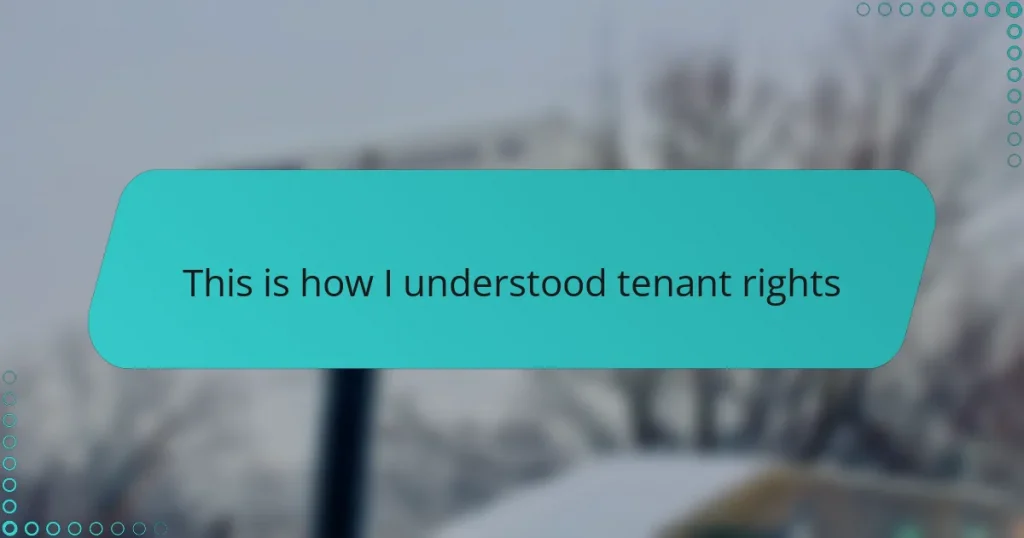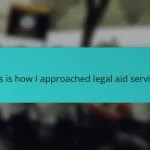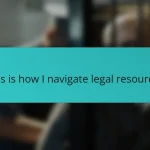Key takeaways
- Tenants have legal rights that protect them, including the right to a habitable living space and safeguards against wrongful eviction.
- Effective communication, particularly in writing, is essential for asserting tenant rights and resolving disputes with landlords.
- Involving tenant advocacy groups can provide valuable support and guidance during conflicts, helping to protect tenants’ interests.
- Understanding tenant responsibilities, such as timely rent payments and property upkeep, is crucial for maintaining a positive rental experience.
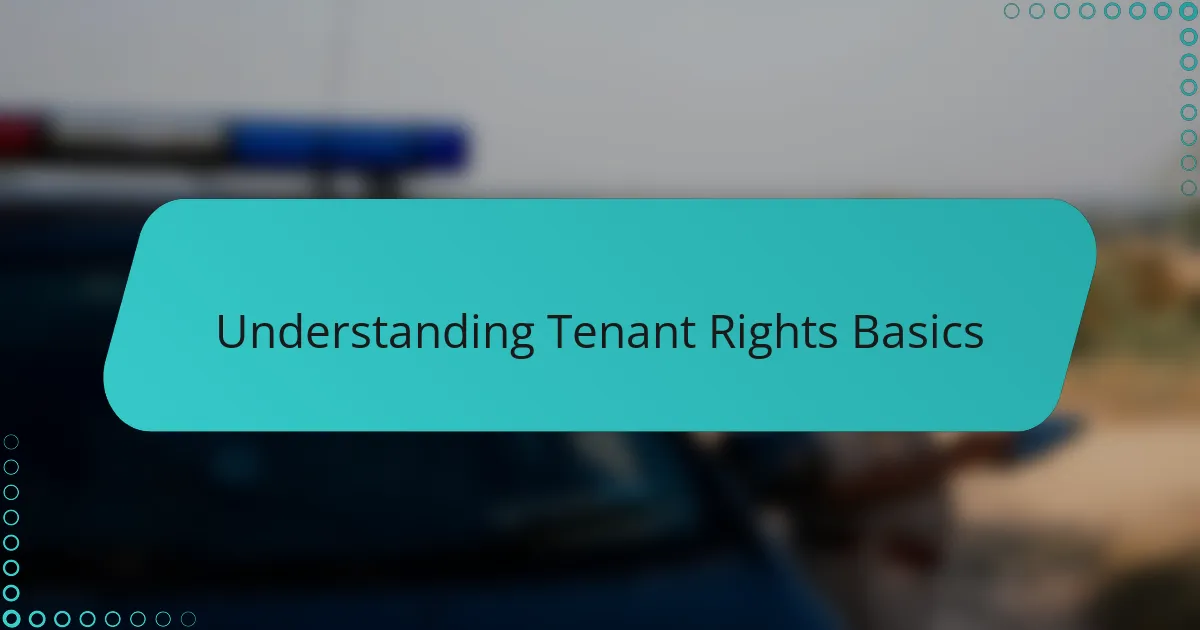
Understanding Tenant Rights Basics
When I first learned about tenant rights, I was surprised by how much protection renters actually have under the law. For example, did you know landlords must keep your home safe and in livable condition? It made me realize that tenants aren’t just at the mercy of whoever owns the property.
I remember feeling overwhelmed by all the rules and wondering, “What if my landlord breaks these rules?” But understanding basics like the right to privacy and the proper procedure for eviction helped me feel more in control. These rights aren’t just legal jargon; they are tools we can use to protect our homes and peace of mind.
Have you ever thought about how your rental agreement fits into your rights? From my experience, knowing that this contract sets the ground rules between you and your landlord is crucial. It’s not just paperwork—it’s a way to defend your space and hold everyone accountable.
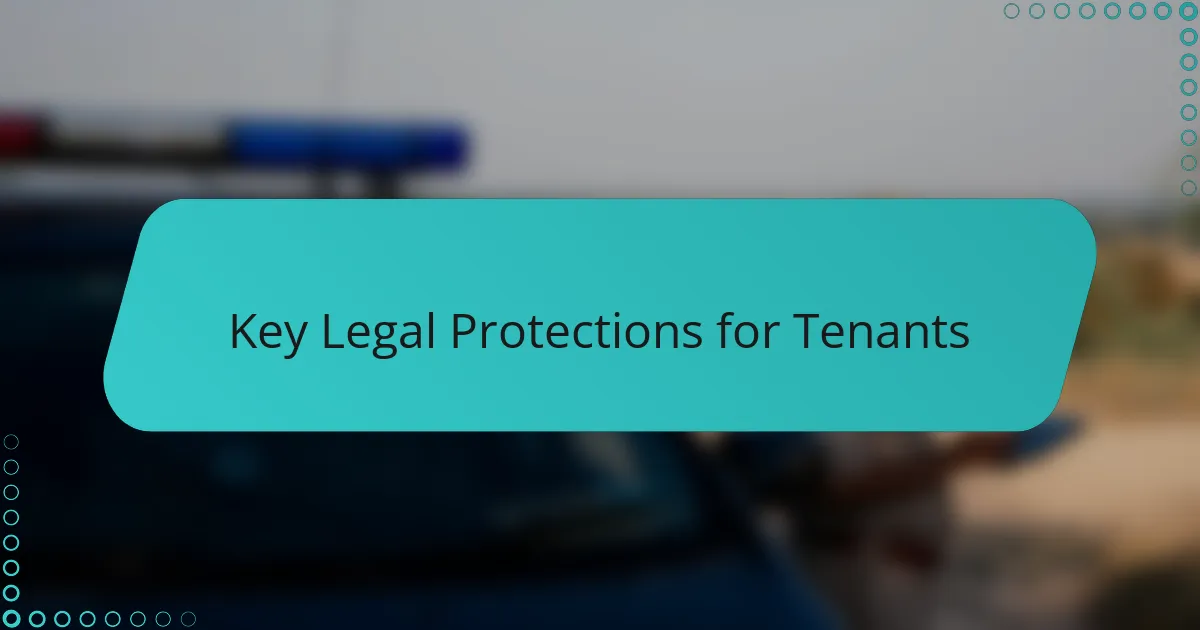
Key Legal Protections for Tenants
One of the most important protections I discovered is the right to a habitable living space. I once spoke with a tenant whose landlord refused to fix broken heating during winter—learning that the law requires landlords to maintain safety and essential services made me realize how empowering this right can be. Have you experienced a situation where your home wasn’t properly maintained? Knowing you can demand repairs without fear is reassuring.
Another key protection involves safeguards against wrongful eviction. Early on, I worried about being asked to leave without warning, but I soon learned that there’s a legal process landlords must follow, including proper notice and valid reasons. This made me feel less vulnerable, understanding that eviction isn’t just at the landlord’s whim but bound by strict rules.
Security deposits are another area where tenant rights really matter. I used to think landlords could withhold deposits for any reason. Finding out there are clear legal limits on deductions and requirements for timely returns changed my perspective completely. Have you ever wondered what you’re entitled to when you move out? This knowledge can save you money and stress during transitions.
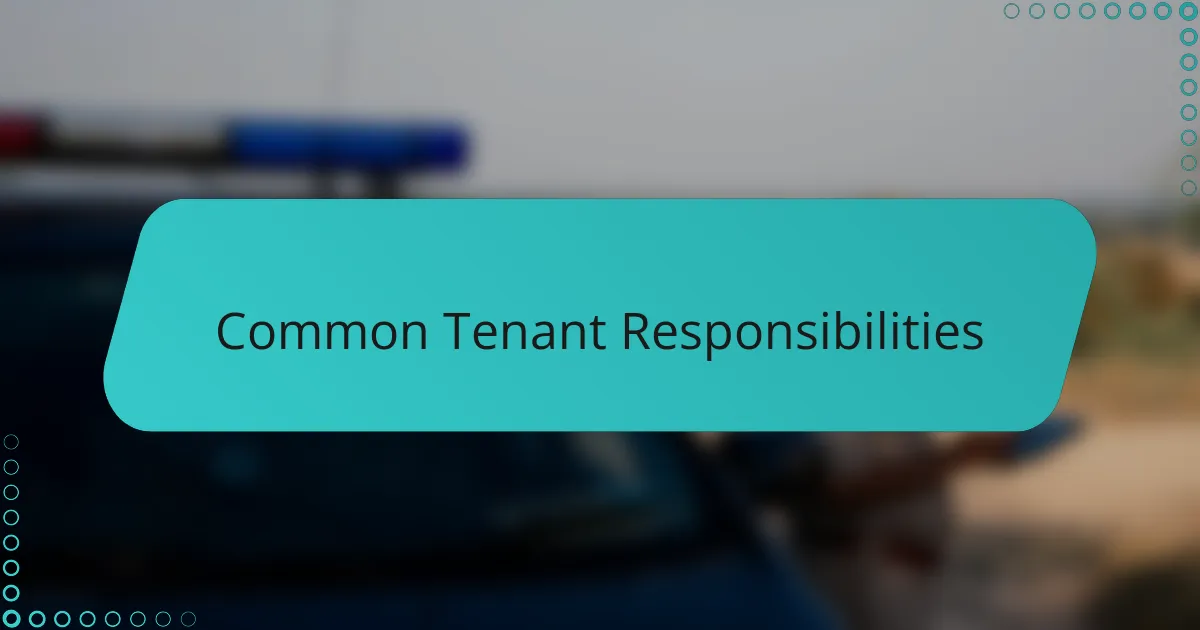
Common Tenant Responsibilities
One thing that stood out to me was how much responsibility actually falls on tenants. For example, I learned early that keeping the rental clean and not causing damage is more than just good manners—it’s often required by the lease. Have you ever thought about how neglecting simple upkeep could actually put you at risk of losing your home?
I also found that paying rent on time isn’t just a courtesy but a fundamental responsibility. Missing payments can lead to serious consequences, which made me realize how important budgeting carefully is when renting. It’s a tough balance, but staying on top of rent is one of the best ways to protect yourself legally.
Then there’s the idea of respecting neighbors and community rules. At first, I underestimated how noise levels or unauthorized pets could impact my standing as a tenant. But the more I read, I saw that being a good neighbor often keeps conflicts away and helps maintain a positive rental experience. Wouldn’t you agree that living peacefully benefits everyone involved?
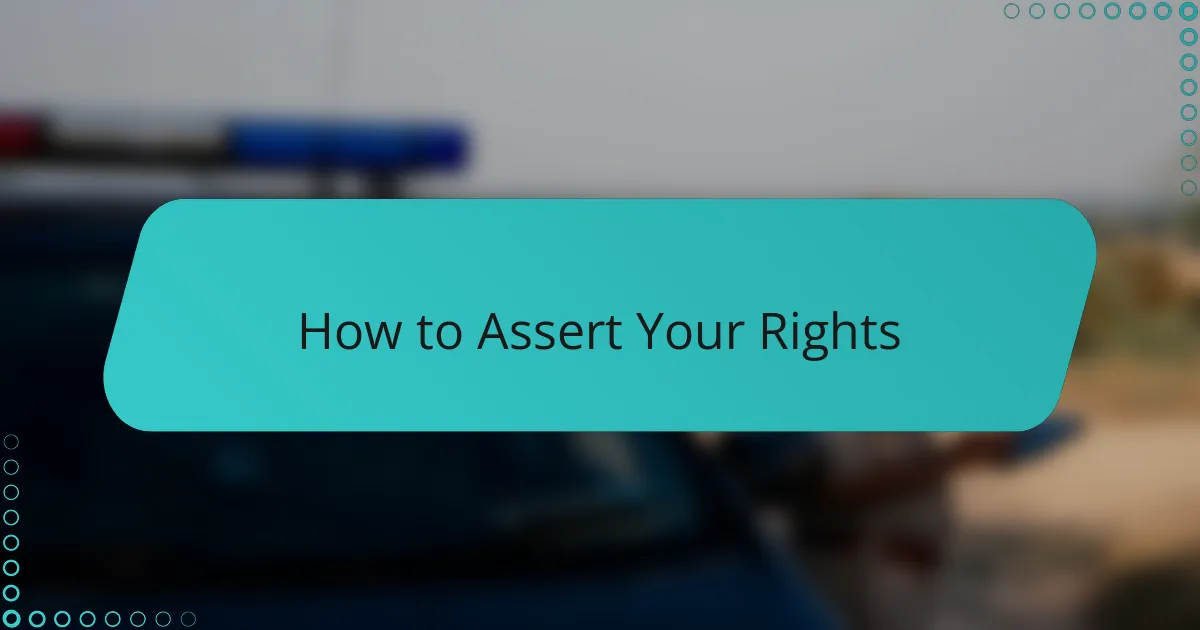
How to Assert Your Rights
When I faced an issue with maintenance delays, I realized that asserting my rights meant clearly communicating with my landlord in writing. Putting concerns on paper wasn’t just about formality—it created a record that gave me confidence in case the problem escalated. Have you ever tried to have a serious conversation without any proof? It’s surprisingly empowering to have documentation backing you up.
Sometimes, I found that knowing when and how to involve local tenant advocacy groups or legal aid made all the difference. It’s easy to feel isolated when disputes arise, but reaching out for support turned a stressful situation into one where I felt heard and protected. Wouldn’t you want someone knowledgeable in your corner when things get complicated?
Finally, standing firm without being confrontational helped me maintain a good relationship with my landlord while defending my rights. I learned that calmly stating your expectations and referencing the lease or laws showed professionalism and seriousness. Have you noticed how staying respectful but assertive can shift a tough discussion into a productive resolution? It’s a skill worth developing in any tenant’s journey.
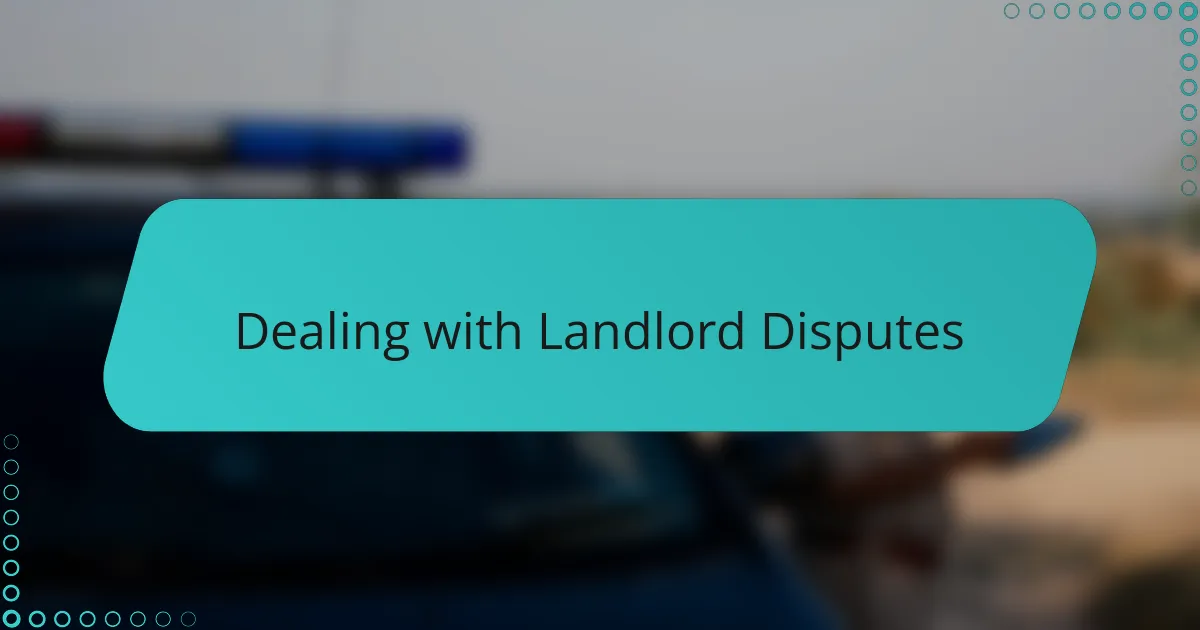
Dealing with Landlord Disputes
Dealing with landlord disputes can feel daunting, especially when emotions run high. I remember a time when my landlord ignored my requests for urgent repairs, and it was frustrating not knowing how to respond. Have you ever felt powerless in a similar situation? What helped me was learning to stay calm and approach the issue with clear, written communication.
It’s tempting to avoid conflict, but addressing problems early can prevent them from escalating. When I firmly, yet respectfully, cited the lease terms and my rights, the landlord took my concerns more seriously. Don’t you think that showing you know your rights changes the dynamic and puts you on more equal footing?
Sometimes disputes require outside help, and that’s perfectly okay. I once contacted a local tenant advocacy group when my landlord refused to return my security deposit—it was a relief to have someone knowledgeable on my side. If you ever find yourself stuck, do you see the value in reaching out for support rather than struggling alone?
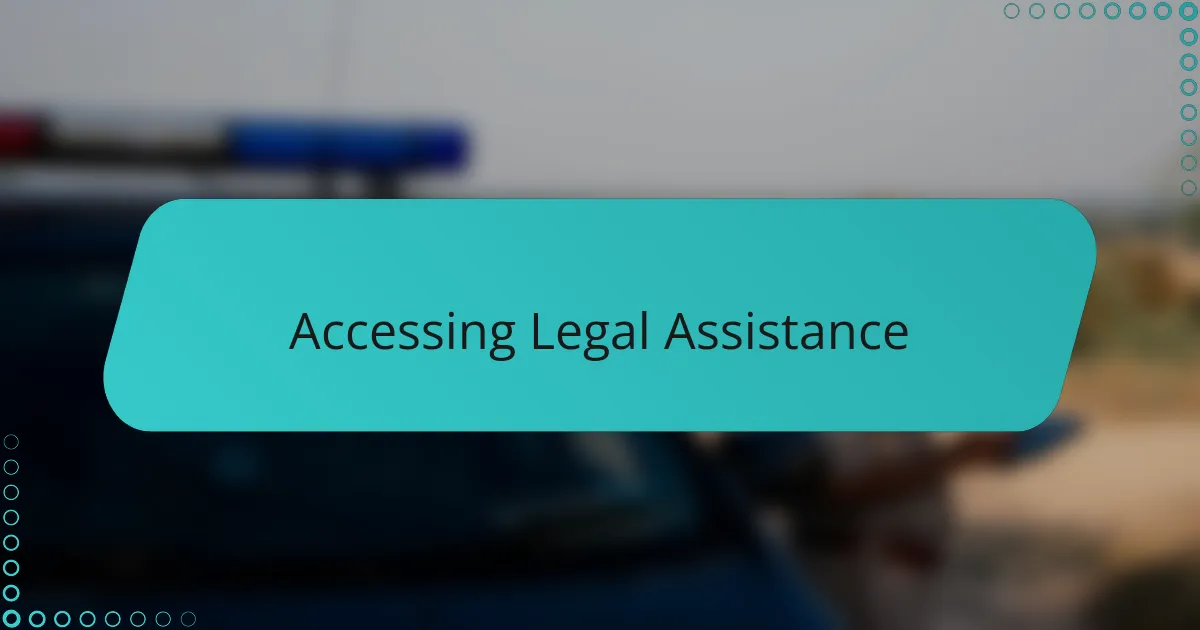
Accessing Legal Assistance
Navigating the labyrinth of tenant rights made me realize how crucial it is to have reliable legal assistance. Early on, I was unsure where to turn when I faced a lease disagreement. Seeking out legal aid clinics not only clarified my options but also gave me peace of mind knowing experts were backing me up—have you ever felt that relief when someone truly understands your struggle?
In my experience, tenant advocacy groups are invaluable resources. When I hit a wall trying to resolve a dispute, reaching out to these groups provided personalized advice and sometimes even legal representation. It’s easy to feel isolated, but don’t tenants deserve allies who can speak the language of the law on their behalf?
Sometimes, I hesitated to ask for help, worrying it might complicate matters. Yet, I learned that professionals in legal assistance are there to empower, not intimidate. Whether it’s clarifying complex lease clauses or guiding you through eviction procedures, having dedicated support can transform a frightening situation into one where you feel in control. Wouldn’t you agree that this kind of guidance is worth seeking out early?
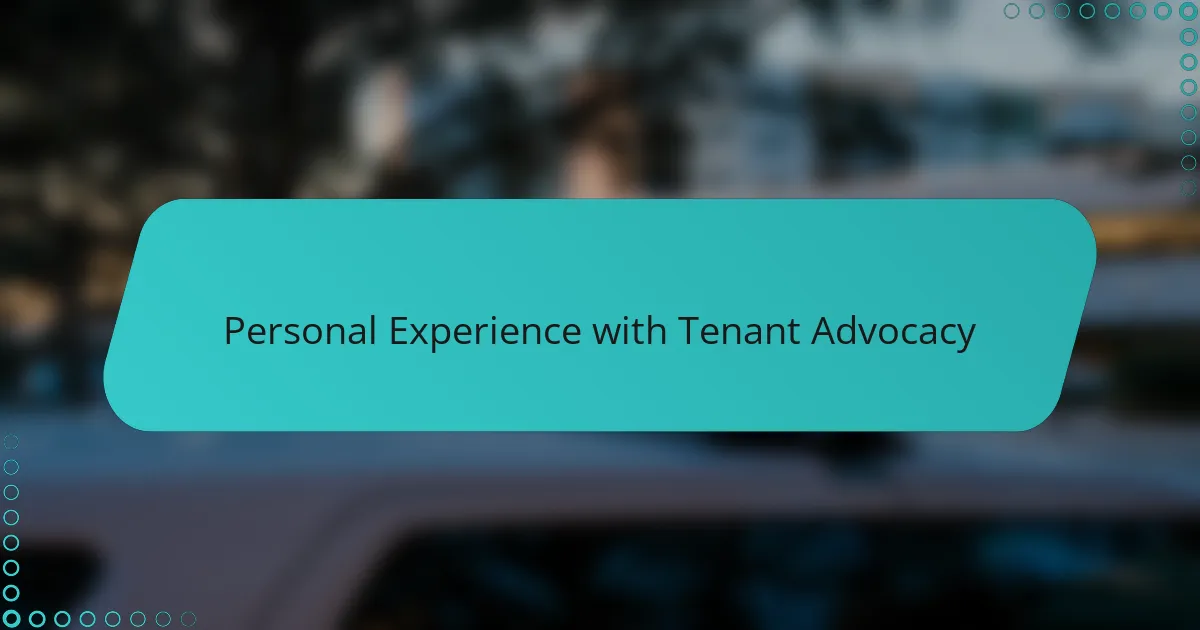
Personal Experience with Tenant Advocacy
When I first reached out to a tenant advocacy group, I was honestly scared they’d dismiss my concerns as minor. But instead, I found people who not only listened but also genuinely cared about my situation. Have you ever experienced that relief when someone validates what you’re going through? It was a turning point that made me feel less alone and more empowered.
I recall one particular case where a neighbor faced eviction threats despite following all the rules. Seeing how the advocacy group stepped in, explained the legal protections, and helped negotiate a resolution made me realize just how crucial these organizations are. Doesn’t it give you hope knowing there’s someone fighting on your behalf when landlords seem unapproachable?
From my experience, tenant advocacy isn’t about creating conflict—it’s about balancing power and ensuring fairness. It taught me that standing up for your rights doesn’t mean being combative; it means knowing your worth and having the right support. Have you thought about what it means to truly have an advocate in your corner? I can assure you, it’s a game changer.
